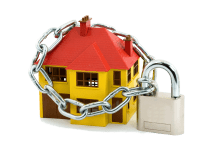
Education is extremely important, never more so during lockdown due to the worldwide Coronavirus (COVID-19) pandemic. Whether you think schools should be closed or not until the situation drastically improves or everybody has been vaccinated, children still need to educated as they can’t just put their lives and future on hold. This can be a challenge for parents and carers as most are not teachers and they will also have to manage their children’s education whilst trying to manage their own workload, whether that is household tasks or having to work from home as they can’t go into the office.
Routine, structure and keeping the children mentally stimulated, along with physical exercise are the keys to successful home/remote learning. You will need to plan your days and create a lesson plan, but don’t try to fit in as much as the children would learn in school – be realistic otherwise it will be very stressful for you and the child. Prioritise the core subjects such as maths and English, you don’t have the worry about Ofsted visiting, and keep it fun! Make use of any remote learning packages your school will have in place (some have live teaching by teachers via video link whilst others just upload work to be completed).
- Keep a routine – kids like structure and need to know exactly what they are doing. Try to keep their bedtimes and getting up times the same. Get them up and dressed at the same time every “school day”, don’t start their learning at home in their pyjamas.
- Follow a timetable – to educate at home is never going to be the same as in a school setting. Try to make it as similar as possible with learning one or two subjects, followed by a break – much the same as they do at school.
- Have your resources ready – print out any resources you are going to use the night before, don’t wait until the day you need them, interrupting lesson time.
- Use the internet to get tips from other parents and carers. Lots of teachers have also been sharing lots of tips on how to educate at home. Some will work for you and your children, some wont, choose what works best for your and your children.
- Keep things fun – this is very important. Kids will not learn the same way as they do at school. So whatever you are helping them learn, try to keep it fun.
- Get some outdoor time – if you have a garden, take some time to get out in it for the kids to run around or kick a ball and burn off some steam. If you don’t have a garden, go for a daily walk around your local area (make sure that during lockdown you observe social distancing rules).
- Exercise – for some this will be playing in the garden or going for a walk, but you can also exercise inside (you can find some good exercise videos on YouTube).
- Eat properly – cut out the snacks and have a healthy lunch. They don’t eat loads of sweets and crisps at school and if you structure their new school day, snacks and crisps should be missing from here as well.
- Read for at least ten minutes per day – this is something that should be done whether schools are closed or not, and most people do. This can be done during the new “school day” or as bedtime reading. If they can read, get them to read to you and then ask questions to see if them understand what the text says or if they are just going through the mechanics of reading and need help with composition.
A lot of schools that are not open will have have sent the kids home with homework packs or arranged online working. Whilst some of them may not be the most engaging (face to face teaching can’t be replaced and will always be the best way to learn), used alongside other resources they will help with the basics. Use the homework packs, use resource websites like Busy Things or Twinkl and although we try to limit screen time, use television for programmes such as BBC Bitesize, educational fun shows like Horrible Histories (reading the books is also going down well in house as they are fun and educational) and nature shows such as Blue Planet. You can even use tablets, laptops or phones with their school logins for access to Purple Mash etc. and resources like Maths Chase, apps like Reading Eggs and Teach Your Monster To Read and even YouTube for art lessons. Just don’t allow them to play the xBox or online games that have no educational value.
Depending on your age, you may have been taught a completely different way at school than kids are these days. Converse with the children as to how they have been taught to complete tasks and if need be, ask them to teach YOU how they do it (you are never too old to learn something new). DO NOT assume you know better or the method they use is silly and try to teach them your way – this will just confuse them! Get them to show you how they have been taught at school or use the internet to educate yourself and learn how to do it. And if they are struggling with an answer, do not give in and tell them. They won’t get every answer correct all the time, that is part of learning and working out where they went wrong will do much more for them.
Education at home isn’t just book learning, you can also use cooking lunch as a lesson – you can use it to teach them how to prepare food and cook, but also get them to write down recipes so they learn to write and follow instructions – this is excellent for helping with maths, English and science (especially with baking where they have to measure out ingredients and see how they interact with each other).
If you are going to educate your children at home, they will need structure and rules, but it needs to be done without pressure or stress and in a way that is good for everybody – there is no one way, you just have to find what works best for your family. At Our Family Reviews we have been using some educational toys and games to make home learning fun, such as literacy board games, science kits, coding toys, an electronic storyteller that helps kids create their own story (and screen free!) and even card games to help with phonics and learning to read. These games and kits are excellent to educate at home whilst keeping it fun, but also superb for spending quality family time together – and who knows, you may even learn a new thing yourself! Our sister website, What’s Good To Read, has book reviews of some educational books that you might also find useful.
To educate at home isn’t easy, but doing nothing will make things harder. Giving them something to do each day not only helps with their education but relieves the boredom of self-isolation and lockdown.





